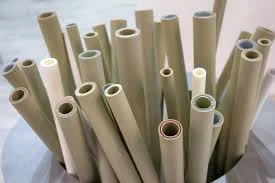
-
 Afrikaans
Afrikaans -
 Albanian
Albanian -
 Amharic
Amharic -
 Arabic
Arabic -
 Armenian
Armenian -
 Azerbaijani
Azerbaijani -
 Basque
Basque -
 Belarusian
Belarusian -
 Bengali
Bengali -
 Bosnian
Bosnian -
 Bulgarian
Bulgarian -
 Catalan
Catalan -
 Cebuano
Cebuano -
 China
China -
 China (Taiwan)
China (Taiwan) -
 Corsican
Corsican -
 Croatian
Croatian -
 Czech
Czech -
 Danish
Danish -
 Dutch
Dutch -
 English
English -
 Esperanto
Esperanto -
 Estonian
Estonian -
 Finnish
Finnish -
 French
French -
 Frisian
Frisian -
 Galician
Galician -
 Georgian
Georgian -
 German
German -
 Greek
Greek -
 Gujarati
Gujarati -
 Haitian Creole
Haitian Creole -
 hausa
hausa -
 hawaiian
hawaiian -
 Hebrew
Hebrew -
 Hindi
Hindi -
 Miao
Miao -
 Hungarian
Hungarian -
 Icelandic
Icelandic -
 igbo
igbo -
 Indonesian
Indonesian -
 irish
irish -
 Italian
Italian -
 Japanese
Japanese -
 Javanese
Javanese -
 Kannada
Kannada -
 kazakh
kazakh -
 Khmer
Khmer -
 Rwandese
Rwandese -
 Korean
Korean -
 Kurdish
Kurdish -
 Kyrgyz
Kyrgyz -
 Lao
Lao -
 Latin
Latin -
 Latvian
Latvian -
 Lithuanian
Lithuanian -
 Luxembourgish
Luxembourgish -
 Macedonian
Macedonian -
 Malgashi
Malgashi -
 Malay
Malay -
 Malayalam
Malayalam -
 Maltese
Maltese -
 Maori
Maori -
 Marathi
Marathi -
 Mongolian
Mongolian -
 Myanmar
Myanmar -
 Nepali
Nepali -
 Norwegian
Norwegian -
 Norwegian
Norwegian -
 Occitan
Occitan -
 Pashto
Pashto -
 Persian
Persian -
 Polish
Polish -
 Portuguese
Portuguese -
 Punjabi
Punjabi -
 Romanian
Romanian -
 Russian
Russian -
 Samoan
Samoan -
 Scottish Gaelic
Scottish Gaelic -
 Serbian
Serbian -
 Sesotho
Sesotho -
 Shona
Shona -
 Sindhi
Sindhi -
 Sinhala
Sinhala -
 Slovak
Slovak -
 Slovenian
Slovenian -
 Somali
Somali -
 Spanish
Spanish -
 Sundanese
Sundanese -
 Swahili
Swahili -
 Swedish
Swedish -
 Tagalog
Tagalog -
 Tajik
Tajik -
 Tamil
Tamil -
 Tatar
Tatar -
 Telugu
Telugu -
 Thai
Thai -
 Turkish
Turkish -
 Turkmen
Turkmen -
 Ukrainian
Ukrainian -
 Urdu
Urdu -
 Uighur
Uighur -
 Uzbek
Uzbek -
 Vietnamese
Vietnamese -
 Welsh
Welsh -
 Bantu
Bantu -
 Yiddish
Yiddish -
 Yoruba
Yoruba -
 Zulu
Zulu
Your Ultimate Guide to RTRP Pipe Solutions
Understanding RTRP Pipe A Comprehensive Overview
In the ever-evolving field of industrial engineering and construction, the need for robust, efficient, and reliable piping systems cannot be overstated. Among the various options available, RTRP pipes, or Reinforced Thermosetting Resin Pipes, have emerged as a vital solution in multiple applications. This article explores the characteristics, advantages, and applications of RTRP pipes, highlighting their significance in modern engineering.
What is RTRP?
RTRP pipes are made from thermosetting resins reinforced with fiber materials, such as glass or carbon fiber. This combination results in a lightweight yet incredibly strong material. The manufacturing process involves curing the resin under heat and pressure, which enhances its chemical resistance and durability. RTRP pipes stand out for their ability to withstand extreme temperatures and harsh environments, making them a preferred choice in various industries.
Key Advantages
1. Corrosion Resistance One of the most appealing features of RTRP pipes is their exceptional resistance to corrosion. Unlike traditional metal pipes, RTRP does not rust or corrode, even when exposed to aggressive chemicals or saline environments. This property significantly enhances the longevity of the piping system, reducing maintenance costs and downtime.
2. Lightweight RTRP pipes are considerably lighter than their metal counterparts, which simplifies installation and transportation. The reduced weight also means that less support is needed, leading to further savings in overall project costs.
Understanding RTRP Pipe A Comprehensive Overview
4. Flexibility and Versatility RTRP pipes can be manufactured in a variety of diameters and lengths, making them highly versatile. They can be tailored to meet specific project requirements, whether for residential plumbing, industrial applications, or infrastructural projects.
rtrp pipe

5. Environmental Benefits Given their longevity and durability, RTRP pipes contribute to sustainable practices in engineering. Reduced need for replacements means less material waste and a lower environmental footprint.
Applications of RTRP Pipes
RTRP pipes find extensive use across several industries due to their advantageous properties. They are commonly used in
- Water and Waste Water Management Their corrosion resistance makes RTRP pipes ideal for transporting water and waste, ensuring safety and longevity in systems that handle aggressive fluids.
- Chemical Processing The ability to withstand various chemicals without degradation makes RTRP suitable for chemical transportation and storage.
- Oil and Gas In the exploration and transport of oil and gas, RTRP pipes provide safe and reliable options that can endure challenging conditions.
- Telecommunications RTRP pipes are often used as conduits for communication lines, offering protection against environmental elements.
Conclusion
In conclusion, RTRP pipes are a testament to innovation in the field of piping systems. Their unique combination of strength, lightweight construction, and resistance to corrosion positions them as a vital asset for many industries. As the demand for robust engineering solutions continues to grow, RTRP pipes will undoubtedly play a crucial role in shaping the future of infrastructure and industrial applications.
Latest news
-
FRP Hood Durable & Lightweight Fiberglass Hood SolutionsNewsApr.29,2025
-
Heavy-Duty Jackhammers for Construction Work Powerful & Portable Electric Demolition ToolsNewsApr.29,2025
-
High-Strength Fiberglass Flanges FRP Blind & Custom Flange SolutionsNewsApr.28,2025
-
Fiberglass Pipe Flanges High-Pressure & Corrosion-Resistant SolutionsNewsApr.28,2025
-
FRP Fuel Tanks Durable Fiberglass & PP Composite Fuel Storage SolutionsNewsApr.28,2025
-
FRP Trough Covers Durable Industrial Protective SolutionsNewsApr.28,2025









